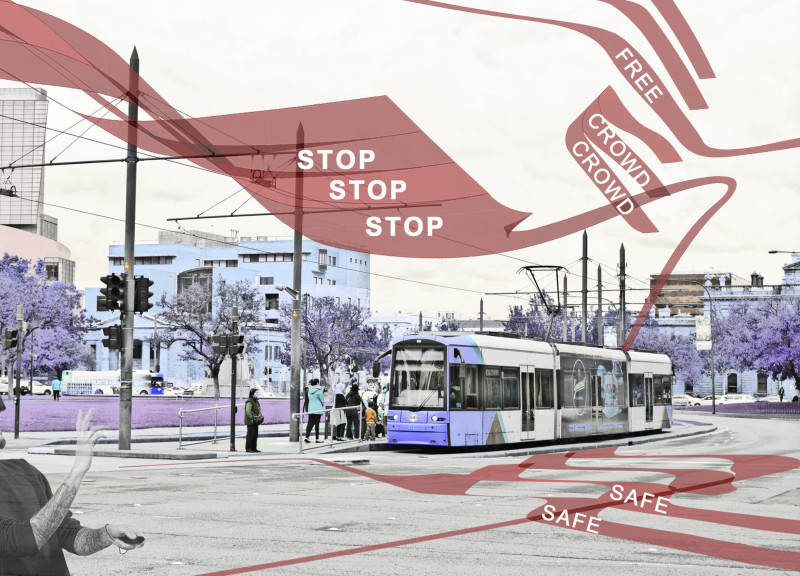5 key facts about this project
Responsive Data Architecture
One of the key elements of the "Moveable Feast" project is its responsive architecture that adapts to social media dynamics. The design leverages a data-driven mesh framework capable of adjusting its configuration based on the emotional and social metrics extracted from platforms like Twitter. This adaptability not only promotes user interactions but also reflects the changing nature of community engagement. By employing materials such as steel for structural elements and glass for transparency, the design emphasizes clarity and openness, inviting active participation from the public.
The project exhibits unique features, such as dynamically shifting surfaces that alter their shapes and volumes in real time, which distinguishes it from conventional architectural endeavors. Such elements are complemented by augmented reality technologies that enhance user experiences, allowing visitors to meaningfully interact with the environment. This focus on user-centric design fosters a deeper connection between the individuals and the spaces they inhabit.
Modular and Interactive Spaces
The architectural layout consists of modular components that can be reconfigured easily, catering to varying user needs and activities. Spaces designated for street theater and community activities are designed to be flexible, promoting gatherings and social interaction. This modularity enables the project to cater to diverse events, ensuring continuous engagement throughout its operational periods.
The integration of ecological design principles further enhances the project’s appeal, allowing for a balance between built and natural environments. These features underscore the commitment to sustainability while addressing the need for communal spaces that encourage collaboration and creative expression.
For a comprehensive understanding of the "Moveable Feast" project, including detailed architectural plans, sections, designs, and ideas, readers are encouraged to explore the complete project presentation. This will provide deeper insights into how this innovative approach to architecture facilitates community connection and engagement through dynamic design.


























